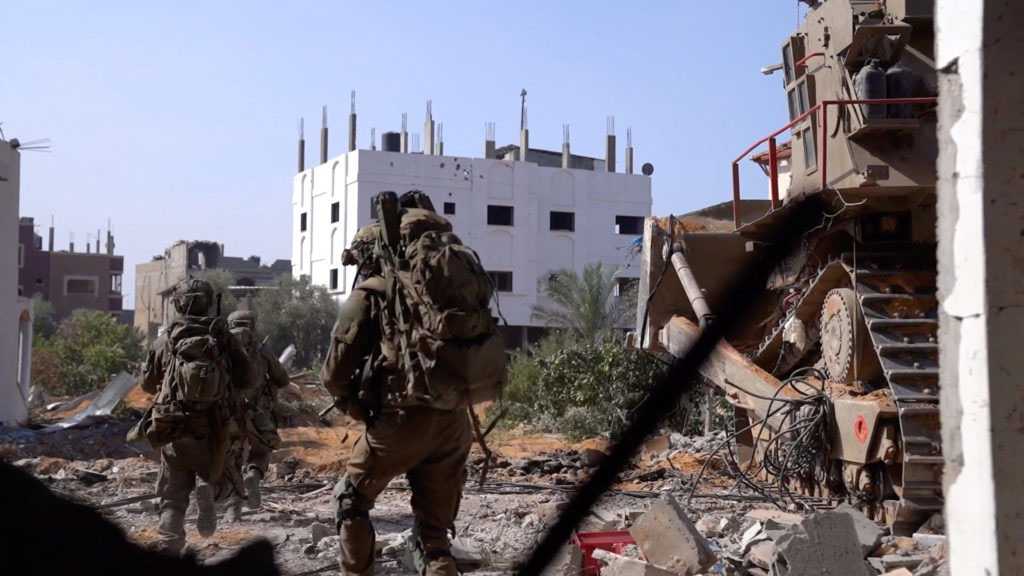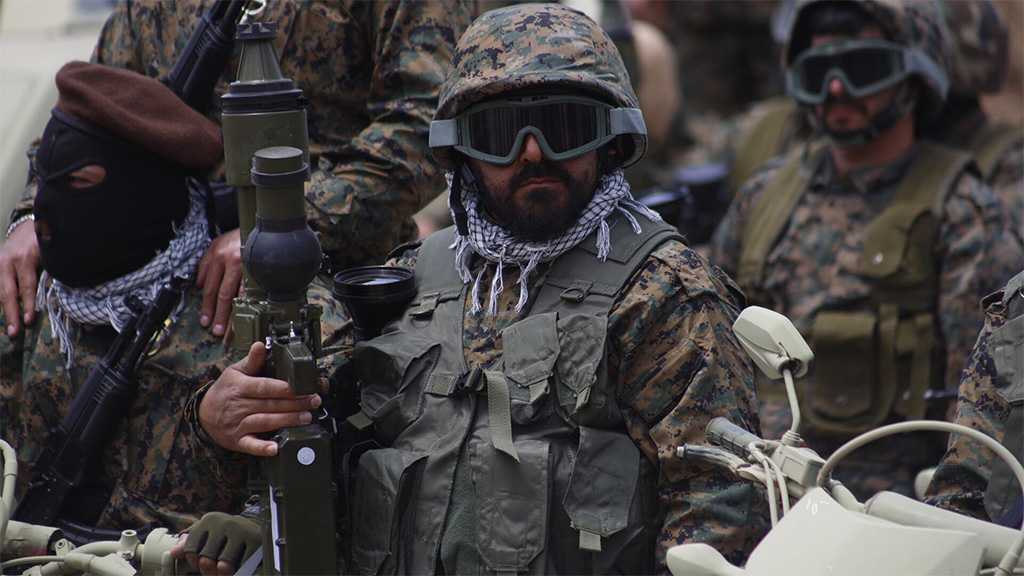
Bin Salman in the Eyes of his Officers: ’This Kid Exhausted Us!’

Ali Murad
Mohammed bin Salman devoted a small part of his media appearance, the evening before yesterday, to talk about the aggression against the Yemenis. The Saudi defense minister reiterated that his coalition forces control nearly 85% of Yemen's territory, disregarding the reality on the ground. And of course, there is nothing to talk about, neither officially nor in the media.

On the 22nd of April, ten days before the interview with the Deputy Crown Prince of Saudi Arabia, Kind Salman ordered payments for "a two-month salary reward for actual participants on the front lines of the Decisive Storm and Restoring Hope Operations, including the employees of the Ministries of Interior, Defense and National Guard, as well as the General Intelligence Presidency". This was also reported by the official Saudi Press Agency [SPA]. This decision coincided with royal decrees that strengthened Bin Salman's grip on the sensitive authorities and paved the way for him to succeed his father after the exclusion of Mohammed bin Nayef.
But the decision to pay the salaries was not the first; Salman already ordered an additional salary for the military sectors involved in the aggression on Yemen in late August, in addition to the extra salary [bonus] that he ordered at the end of April 2015. Why is it that the Saudi king and his son, who are able to resolve the battle quickly, if they want, bestow money on the soldiers of the Kingdom once in a while, knowing that the armed forces participating in the aggression did not achieve any of its goals for the past two and a half years?
Many people see these royal "honors" as an urgent necessity for the inhabitants of "Al Yamamah" due to the many problems that besmirch the Saudi military sectors as the monarchy's negative effects accumulate. He is seeking to pick up the pieces by paying additional salaries and rewards to appease the military and cover up the failure. But another face of the crisis is unfolding.
According to an officer who says he broke away from the Saudi army, Abdul Wahid bin Abdul Mohsen Al-Arima Al-Harbi, told "Al Akhbar" that "the morale of the Saudi soldiers has been shattered as early as the fourth month of the aggression against Yemen." Al-Harbi took refuge in Germany at the beginning of this year. He said that he was the secretary of the head of the "Armed Forces Directorate" in the Saudi Ministry of Defense, Maj. Gen. Ali bin Saad al-Mari. The latter is directly responsible for the management of the affairs of the armed forces and their military trails. Reports that explain the difficulties facing the soldiers of Bin Salman's Ministry of Defense are sent to his office.
By virtue of his job, al-Harbi was able to access sensitive information contained in the reports reaching the office of Major General Al-Mari. He adds that the situation according to the units fighting in Yemen "has worsened after the salaries have been reduced. In the last three months of last year, seven cables from the southern border have been received, in which senior officers report that the combat spirit of the military is very low." According to the dissident officer, "Mohammed bin Salman ignored all this, and he literally said: I do not see anyone from the military standing at the door of my office in the neighborhood of Nasiriyah in Riyadh."
Following the Deputy Crown Prince's response, Al-Harbi confirmed that a delegation of military commanders in the General Staff went to the King's son to tell him that the army was morally broken. His son replied "let them be patient". Later, al-Harbi adds, the phenomenon of disobeying orders started. Then soldiers began disappearing in the area of the ‘southern border', which led officers to inquire about their missing troops on the Yemeni side through intermediaries. Whenever the response denied their presence as prisoners of the Yemenis, the military police would comb the areas adjacent to the frontier along the border and find no trace of them. Later, it turned out that the soldiers were fleeing from the front to outside Saudi Arabia or to agricultural areas belonging to their relatives where they secretly hid out of sight.
Al-Harbi explains that he managed to document the escape of 62 military personnel in the last three months before his defection, and that "the military police has been recently slacking in the search operation for them." Another form of collapse and refusal to fight has been noticeably and repeatedly taking place. The military leadership confirmed that "soldiers were setting fire to their vehicles, yet they were not being held accountable, or they would turn on lights in positions they occupy so as to be bombed from the Yemeni side!"
And because al-Harbi was briefed on the reports of officers responsible for the fronts, he confirms that the body he served counted the killing of 4700 Saudi and Gulf soldiers, adding that the administration was receiving requests by the military men to be dismissed from service under the pretext of "disorder and psychological problems". Before his departure, "the number of these requests increased until the number of military men in psychiatric hospitals receiving treatment reached to about two thousand, which prompted the staff to reject these requests and stop transferring the military men to psychological treatment."
Al-Harbi reveals that Mohammed bin Salman is rarely in his office at the Ministry of Defense, but he "preferred to follow the affairs of the economy, oil prices and investments and assigns his current director of his office Mohammed Al-Sheikh [and before him Fahd Al-Issa] to conduct the affairs of the Ministry of Defense and give guidance to the General Staff." The dissident officer says that most high-ranking officers look angrily at Bin Salman's policy of indifference in his ministry. They resent the arrival of orders and decisions to their offices from the office of the defense minister, which is signed by the director of his office.
At this point, he narrates an incident that he witnessed in a colonel's office at the ministry building, where he received paperwork from the office of the minister carried by a soldier. After he found out that it was from the minister's office, he told the soldier: "Give me, let me see, this kid has exhausted us!" Al-Harbi, who had previously served as a special secretary for two Brigadier generals and a Major general in the Ministry of Defense, believes that Bin Salman is pursuing a policy of stubbornness that refuses to acknowledge defeat, and that not even his armed forces and mercenaries from Sudan and other States as well as the salaries and the additional financial bonuses paid to them will secure him victories. He concludes: "He knows this fact, but he is seeking to get out of the Yemeni quagmire in any way even if this exit was just a media victory."
Al-Akhbar Newspaper, Translated by al-Ahed News



